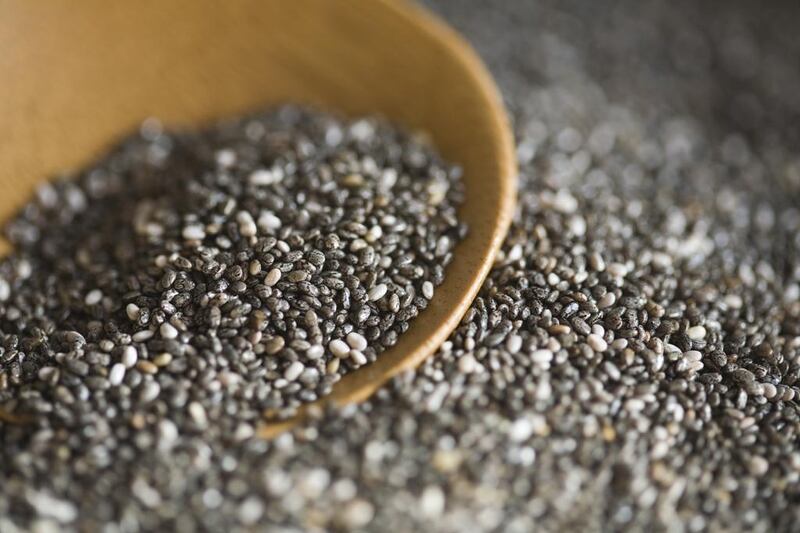If there was ever a search for the ingredient most deserving of the description “small but mighty”, then the spotlight should fall on the teeny-tiny chia seed.
Harvested from the salvia hispanica plant (a flowering member of the mint family), these grey, black or sometimes white seeds have been around for thousands of years and are believed to have been a staple food in the diet of the ancient Aztecs.
While its days of fuelling warriors heading into battle might be over, the chia seed remains a real nutritional powerhouse.
For the uninitiated, chia seeds have very little discernible flavour of their own. While that might sound like a negative, it is far from a drawback because this means you can add chia to any number of dishes without altering the taste, while giving the dish a fully loaded nutritional boost.
Health benefits
In addition to being gluten-free and rich in iron and calcium, nutrient-dense chia seeds are also packed with dietary fibre and a great plant-based protein source.
Jordana Smith, a licensed dietician at Infinity Family Medicine Clinic in Dubai, says their health benefits go even further.
“Due to their high levels of omega-3 fatty acids, chia seeds play a role in improving our cholesterol profile, helping to raise HDL [good cholesterol] levels and in turn, protecting the heart,” she explains. “They also have powerful anti-inflammatory properties.”
In addition to providing a slow-release form of energy – the key to keeping blood-sugar levels constant – the high-fibre content of chia seeds means that when we eat them we feel more full for longer, which can help aid weight loss and reduce cravings.
Another impressive quality of the chia seed is its ability to absorb liquid. A conservative estimate suggests each seed can hold more than 10 times its weight in liquid. Soaked seeds can therefore guard against dehydration, regulate fluid levels and help the body to retain electrolytes, which is particularly handy for endurance athletes (an any remaining Aztec warriors).
How to
When they come into contact with liquid, chia seeds swell up into small, cylindrical globules with a smooth, gel-like consistency not dissimilar to the texture of caviar. This is where opinions tend to become divided.
Those that embrace this, admittedly slightly unusual, texture can enjoy chia in its most common culinary incarnation: the chia pudding. If you haven’t sampled this nutritious, easy-to-prepare creation it’s worth seeking out – or make your own.
Simply soak two tablespoons of chia seeds in 120 millilitres of liquid (water is fine, coconut water will add flavour, and milk will give a creamy result) for at least 15 minutes, or overnight in the fridge. Before eating, mix well and customise as you desire. Add a little ground cinnamon, for example, or the seeds from a vanilla pod, drizzle with honey, agave or brown rice syrup and top with fresh fruit or a dollop of yogurt.
If you find you are put off by the texture of soaked chia, this pudding will not appeal – but fear not, there are plenty of other ways to use chia seeds.
Toast them in a dry pan, leave to cool and store in an airtight container, ready to sprinkle over salads, stir fries and soups. Alternatively, add a couple of tablespoons to granola or muesli mixes for an extra energy-boost, stir into muffin batter or a pizza-dough base before baking, or use chia seeds as a binding agent when making homemade meatballs or burgers.
Tips
It is worth keeping in mind that while the health benefits of chia seeds are numerous and varied, they are relatively high in calories – each tablespoon contains about 70.
The seeds will keep for months if stored correctly. For optimum freshness, store in an airtight container away from direct heat and sunlight.
Next week: seaweed
artslife@thenational.ae






